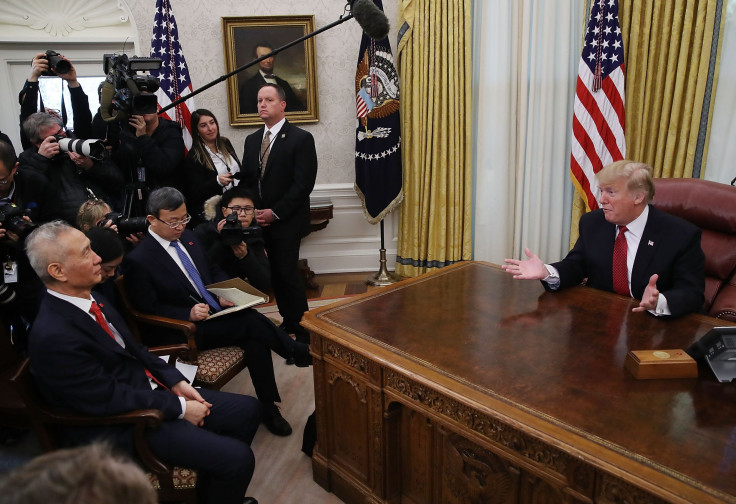China Rules Out Retaliation To New U.S. Tariffs: Mulls De-Escalation Via Talks

Departing from the tit for tat reaction in the tariff war with the United States, China on Thursday said it would not retaliate against the latest U.S. tariff hikes announced by President Donald Trump last week.
China’s spokesman counseled the path of negotiations to deescalate the trade war between the world’s two largest economies.
“China has ample means for retaliation but thinks the question that should be discussed now is about removing the new tariffs to prevent escalation of the trade war,” the Ministry of Commerce spokesman Gao Feng told reporters in Beijing.
Feng also added that China will lodge “solemn representations” with the U.S. on the matter.
On being asked that means China will not react to the latest escalation by the U.S, Gao evaded a detailed answer but repeated the same comments.
So far China used to hit back in the same coin on any tariff increase from the U.S side. Therefore, the current approach signals a visible change in strategy.
China’s accommodative signal lifts stock markets
The positive signals from China lifted investor sentiments and stocks across Asia recouped losses and European stocks zoomed higher as U.S. equity futures and investors viewed the comments as an olive branch from Beijing.
According to China news, Gao also said both sides are looking forward to the September talks in Washington.
“Escalation of the trade war won’t benefit China, nor the U.S., nor the world,” Gao said.
“The most important thing is to create the necessary conditions for continuing negotiations.”
China’s new response to the trade war came amid signs that its economy continues to shrink, according to reports.
Escalated tariff war
The U.S. announced new tariff rates earlier in August despite a truce arrived at the G 20 meeting between President Donald Trump and China President Xi Jinping in Japan’s Osaka.
Accordingly, there has to be a 10 percent tariff on $300 billion of Chinese goods effective from September and December.
But Beijing retaliated with new tariffs on U.S imports in the third week of August triggering a harsh response from Trump who hiked the new tariffs from 10 to 15 percent.
Making viral Trump news, the president also jacked up the previously existing 25 percent tariffs on $250 billion in imports from China to 30 percent from Oct. 1, the 70th anniversary of the founding of China.
It seems China’s new line is tactical in not provoking Trump with new tariffs from its side before the talks resume.
The spokesman endorsed Vice Premier Liu He’s comments on Monday that China is “willing to solve the problem through consultation and cooperation with a calm attitude, but firmly opposes the escalation of the trade war.”
Gao also mentioned the flurry of statements in the U.S related to trade war.
“In the area of economics and trade, we will clarify the facts and let everyone understand the truth” and refused to confirm whether Trump’s comments were also part of these “sayings.”
The U.S Treasury Secretary Steven Mnuchin said American trade officials expect Chinese negotiators to visit Washington, but did not confirm whether the September meeting would lead to talks.
© Copyright IBTimes 2024. All rights reserved.





















